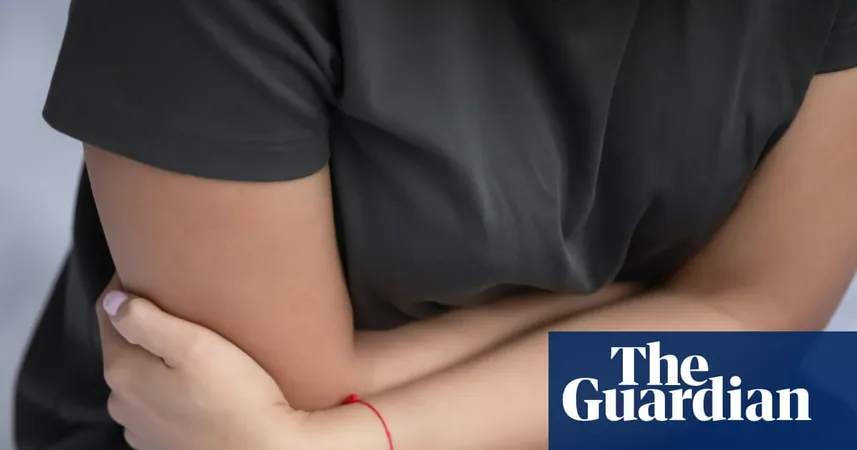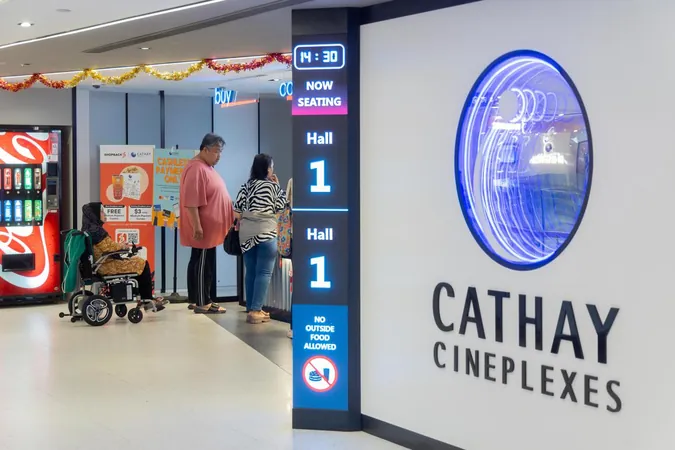
Shocking Link: Teenage Period Pain Could Signal Future Chronic Pain
2025-08-31
Author: Jia
A groundbreaking study reveals a startling connection between severe period pain in teenagers and an increased risk of chronic pain in adulthood. This research is urging a reevaluation of menstrual health education and support for young people.
Conducted by the University of Oxford, the study analyzed data from over 1,100 participants in the Avon Longitudinal Study of Parents and Children. The results are alarming: teenagers who experience severe dysmenorrhea at age 15 have a 76% higher risk of suffering from chronic pain by age 26, while those with moderate pain see an increase of 65%.
What sets this study apart is its focus on how adolescent period pain can be an early indicator of chronic pain in various parts of the body—not just the pelvis. The findings indicate that those who suffer from moderate to severe menstrual pain are significantly more likely to experience chronic lower back and abdominal pain, as well as chronic headaches and joint issues.
The research, published in the prestigious Lancet Child & Adolescent Health journal, emphasizes that while emotional factors such as anxiety and depression can contribute to chronic pain, they only play a minor role in this context.
Dr. Rachel Reid-McCann, the lead researcher, highlights that the teenage brain's increased 'neuroplasticity' may make it more receptive to pain signals, permanently altering how pain is processed.
Professor Katy Vincent, a gynaecological pain expert at Oxford, stresses the broader implications of menstrual pain on young people's lives, impacting everything from education to mental health. Despite the seriousness of these conditions, many young women do not seek help and often face stigma for their symptoms.
In response to the findings, Professor Ranee Thakar, president of the Royal College of Obstetricians and Gynaecologists, stresses that severe menstrual pain should never disrupt schooling or work. She advises that those experiencing debilitating pain that doesn't improve with over-the-counter medications should consult a healthcare professional.
Janet Lindsay, CEO of the charity Wellbeing of Women, voices concern over the societal stigma surrounding menstruation, warning that neglecting teenage period pain could result in long-term health issues for millions of women. She calls for increased education and support to dismantle these outdated notions.
A spokesperson for the Department of Health and Social Care reassures that steps are being taken to ensure women and girls receive the treatment and respect they deserve. New initiatives, including accessible appointments and free emergency contraception, aim to address these pressing health concerns.
This research serves as a vital reminder: addressing menstrual pain in teens is crucial not just for immediate relief but for long-term health, highlighting the need for societal change surrounding menstrual health.


 Brasil (PT)
Brasil (PT)
 Canada (EN)
Canada (EN)
 Chile (ES)
Chile (ES)
 Česko (CS)
Česko (CS)
 대한민국 (KO)
대한민국 (KO)
 España (ES)
España (ES)
 France (FR)
France (FR)
 Hong Kong (EN)
Hong Kong (EN)
 Italia (IT)
Italia (IT)
 日本 (JA)
日本 (JA)
 Magyarország (HU)
Magyarország (HU)
 Norge (NO)
Norge (NO)
 Polska (PL)
Polska (PL)
 Schweiz (DE)
Schweiz (DE)
 Singapore (EN)
Singapore (EN)
 Sverige (SV)
Sverige (SV)
 Suomi (FI)
Suomi (FI)
 Türkiye (TR)
Türkiye (TR)
 الإمارات العربية المتحدة (AR)
الإمارات العربية المتحدة (AR)